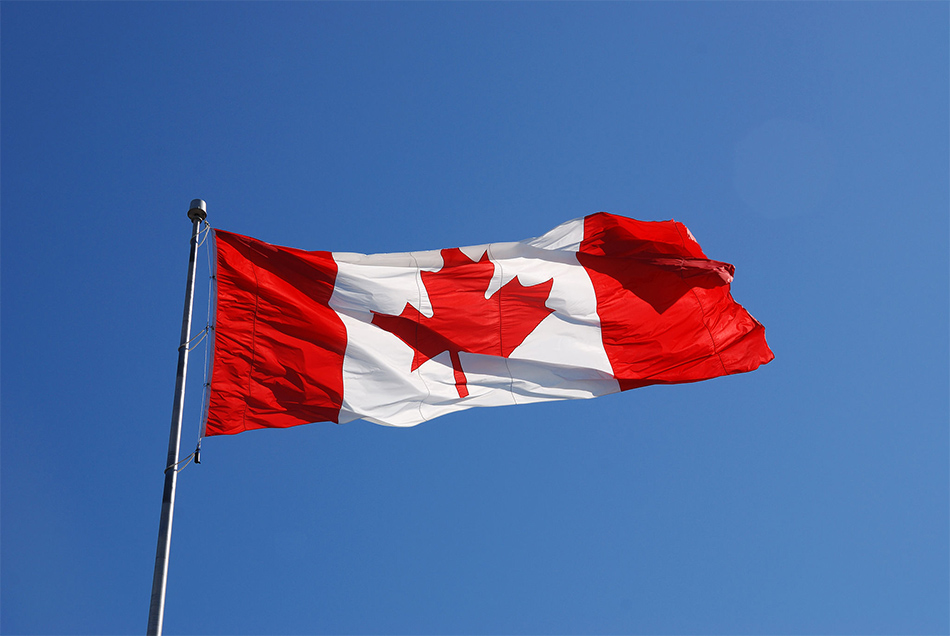Canada Seeks Input on Proposed Digital Services Tax
U.S. Big Tech pushes back on what it says is breaking ranks with international agreement

The smarter way to stay on top of the multichannel video marketplace. Sign up below.
You are now subscribed
Your newsletter sign-up was successful
“O, Canada” has taken on a frustrated tone in the U.S. among foes of digital services taxes (DSTs), which include big computer companies.
The Northern neighbor has ruffled some Bald Eagle feathers in Washington with the decision to invite comment on its proposal to impose a DST on online business within its borders.
Those are taxes on the in-country digital revenues of large foreign-based companies, including U.S.-headquartered giants and their revenue from search (Google), social media (Facebook) and online marketplaces (Amazon).
It was not clear whether the tax would include streamers, or as Canada had previously pondered, carving out video content providers and instead taxing their subscribers, which drew some in-country pushback.
Reps. Suzan DelBene (D-Wash.) and Darin LaHood (R-Ill.), co-chairs of the Digital Trade Caucus, issued a statement Friday expressing their unhappiness with the tax proposal, which Canada billed as part of a needed response to the economic hit of the COVID-19 pandemic, though it would not go into effect until 2024 but would apply retroactively.
“We are concerned with Canada’s decision to move forward with a unilateral DST,” they said. “If enacted, this tax would erode confidence in the October OECD/G20 agreement reached by the United States, Canada and more than 130 other countries. This agreement was designed to address global taxation issues and end the worldwide proliferation of DSTs, which disproportionately hurt American businesses and their workers. Although Canada’s proposed DST would not go into effect until 2024, it would apply retroactively to all earnings starting Jan. 1, 2022, putting at risk the long-term stability of the global tax agreement and creating immediate, significant tax complexities for American companies."
CTV reported that the proposed tax would only go into effect if the OECD/G20 agreement had not been implemented by 2024.
The smarter way to stay on top of the multichannel video marketplace. Sign up below.
The EU had been planning a digital tax, but held off given the ongoing OECD talks that resulted in that agreement. That digital tax was also part of a larger EU plan to fund recovery from the COVID-19 pandemic and with the justification that tax rates for digital companies are lower than for those in traditional businesses.
In the OECD/G20 agreement, the countries agreed to withdraw existing DSTs and not impose any new ones — Canada had been teeing up a DST for launch in January 2022. The agreement gave countries that imposed digital taxes more time to withdraw then, but however much digital tax is collected from companies in the interim will count toward the 15% minimum corporate tax they had also agreed to.
“Canada’s determination to pursue a unilateral, retroactive DST immediately following the OECD’s much-heralded final agreement threatens years of work by the U.S. government,” the Computer & Communications Industry Association warned back in November.
“We encourage Canada to reconsider the new digital tax, which targets specific U.S. companies and undermines the immense efforts by international partners to deliver a long-term solution to global tax reform,” CCIA president Matt Schruers said. “It is particularly inappropriate that Canada would proceed with its own digital taxes, breaking with the global tax agreement reached just months ago. Imposing discriminatory taxes on each others’ exporters are not how close allies and trading partners act.”
“Canada’s advancement of a digital services tax undermines the ongoing OECD/G20 Inclusive Framework negotiations to address the tax challenges arising from the digitalization of the global economy, particularly in light of the moratorium on the imposition of newly enacted measures,” said Megan Funkhouser, director of tax, policy, and trade for ITI, the global tech association. “We strongly encourage Canada to demonstrate its commitment to the multilateral negotiations by withdrawing its unilateral tax proposal and continuing its engagement to develop a consensus-based solution to bring much-needed certainty to businesses and stability to the international tax system.”
Contributing editor John Eggerton has been an editor and/or writer on media regulation, legislation and policy for over four decades, including covering the FCC, FTC, Congress, the major media trade associations, and the federal courts. In addition to Multichannel News and Broadcasting + Cable, his work has appeared in Radio World, TV Technology, TV Fax, This Week in Consumer Electronics, Variety and the Encyclopedia Britannica.

